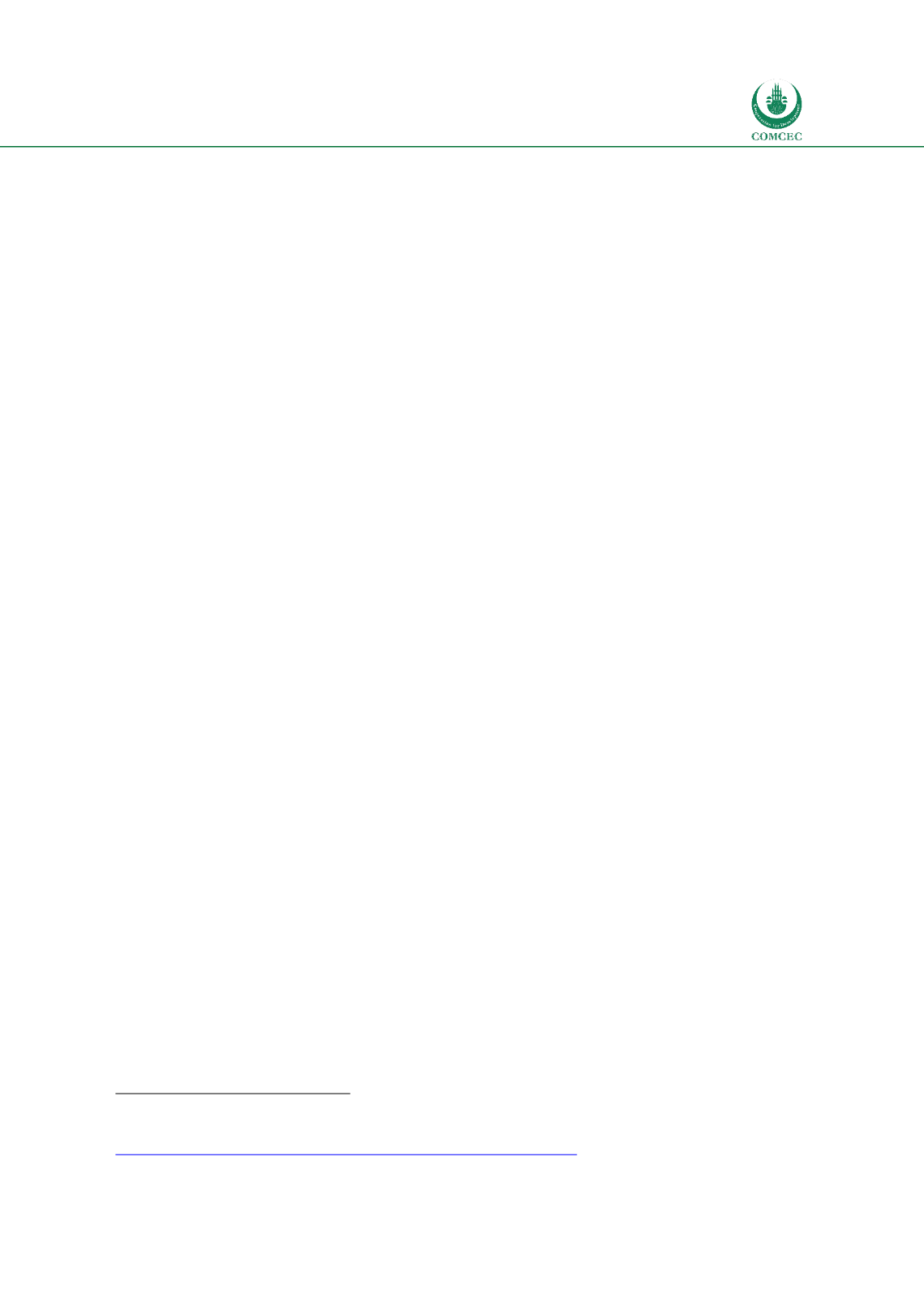

National and Global Islamic Financial Architecture:
Prolems and Possible Solutions for the OIC Member Countries
145
Assurance Fund” was transferred to the SDIF. In addition, BRSA with its new legislation
became the sole regulative authority for both conventional banks and participation banks in
2005, which “overcame the duality observed in the legal, regulative and operative framework
of these banks since their inception in 1985” (Asutay, 2013: 215). The Banking Act No. 5411 of
2005 brought participation banks under its umbrella and provided unitary and fair playing
field by enabling participation banks to have the same privileges and status as conventional
banks.
As regards to
takaful
provision, regardless of whether the institution is Islamic or
conventional, all insurance companies are subject to the provisions of the Insurance Law
(Batur, 2014).
Legal developments in Islamic financial service provision continued with the issuing of a
Communiqué by the Capital Markets Board (CMB) to facilitate the
ijarah sukuk
on 01/04/2010,
which led to the first
sukuk
(off-shore) issued by Kuveyt-Turk in 2010. An amendment to tax
law in February 2011 provided tax neutrality for
ijarah sukuk
. Hence, after the necessary tax
regulations, the first domestic corporate
sukuk
was issued in October 2011 by Kuveyt-Turk. In
June 2012, an amendment for Public Finance and Debt Management Law No. 4749 provided
the necessary legislation for sovereign
sukuk
resulting in the first sovereign
sukuk
issues by the
Republic of Turkey on 18/09/2012 in domestic and international capital markets. “The
amendment of the financial bill in February 2011 also ratified the ‘Treaty for Founding the
Islamic Corporation for the Development of the Private Sector’, initiated by the Islamic
Development Bank to promote economic growth in the member countries through Islamic
finance” (Asutay, 2013: 216). A new Communique from the CMB of Turkey on 07/06/2013,
which regulates Sukuk issued based on ownership, management agreement, trading,
partnership, engineering, procurement and construction contract and combined use of listed,
as well as other types of Sukuk which are accepted by CMB whereby Islamic capital market
sphere was facilitated with new instruments.
In consolidating the institutional development, on 06/01/2011, Borsa Istanbul (Istanbul Stock
Exchange) “launched the Participation Index for Islamic banks, known as KATLM, which
operates through industrial and financial
Shari‘ah
screening” (Asutay, 2013: 216). Moreover,
on the collective investment schemes side, the legal framework for participation funds has
been established. Consequently, Islamic collective investment schemes have been established
in Turkey in the form of participation funds.
34
Tax regimes and impact on Islamic finance
Participation banks faced challenges in their operations from the tax system, as Islamic finance
transactions can involve a number of sales contracts within one particular transaction. A
particular issue is VAT, as VAT has beenin operation in Turkey since the early 1980s, which
implies that one Islamic financing transaction may incur a set of VATs. Similar to other
jurisdictions, Turkey provided tax neutrality in making sure that the operations of
participation banks should have a (relatively) fair playing ground, which has been possible by
subjecting individual transactions to tax rather than levying tax on each of the contracts
34
Communiqué on Principles of Investment Funds (III-52.1)
http://www.cmb.gov.tr/apps/teblig/displayteblig.aspx?id=498&ct=f&action=displayfile )















